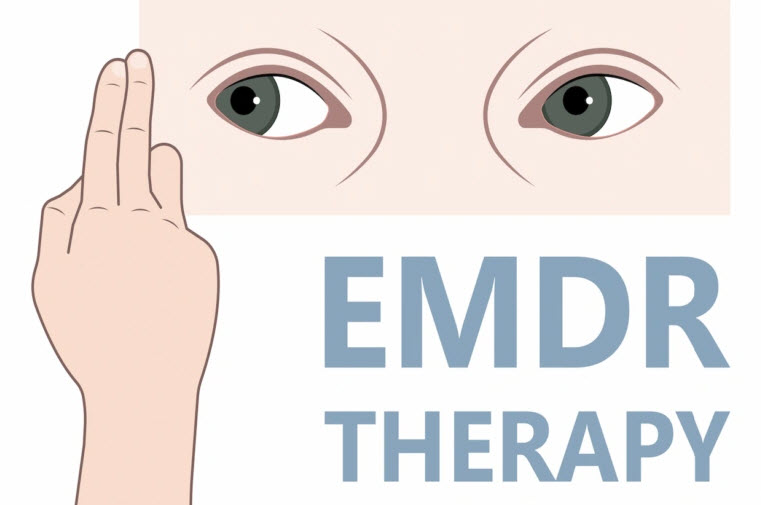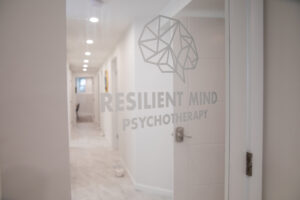EMDR Therapy in Brooklyn, NY
In the heart of the vibrant neighborhood of Bay Ridge, Brooklyn, lies Resilient Mind Psychotherapy, a beacon of hope and healing for individuals seeking EMDR (Eye Movement Desensitization and Reprocessing) therapy. With a strong commitment to helping those dealing with the weight of trauma, we specialize in EMDR therapy, offering a path to healing, resilience, and recovery.
Eye Movement Desensitization and Reprocessing Therapy in Brooklyn, NY

Resilient Mind Psychotherapy is proud to offer EMDR therapy in the lively borough of Brooklyn, New York City. EMDR is a groundbreaking and evidence-based therapy approach that has been proven effective in helping individuals process and heal from various forms of trauma, anxiety, and other distressing experiences. Our dedicated team of experienced and compassionate therapists is here to guide you on your journey toward a healthier and happier life.
EMDR therapy is designed to address the emotional and psychological impact of traumatic events. Trauma can manifest in many forms, including post-traumatic stress disorder (PTSD), anxiety, depression, and more. EMDR helps individuals reprocess distressing memories, allowing them to integrate these experiences into their past and move forward with resilience.
Resilient Mind Psychotherapy acknowledges the individuality of each individual’s experiences, and our utilization of Eye Movement Desensitization and Reprocessing (EMDR) treatment is customized to cater to your distinct requirements. Our therapists are available to offer a secure and nurturing environment for those who have encountered either a solitary traumatic incident or have a background of intricate trauma, with the aim of facilitating their process of recovery.
EMDR Trauma Therapy
Trauma can cast a long shadow over one’s life, impacting relationships, self-esteem, and overall well-being. EMDR therapy is particularly effective in addressing trauma by targeting the distressing memories that continue to haunt individuals, contributing to symptoms like flashbacks, nightmares, and hypervigilance.
During EMDR sessions, clients work closely with their therapist to identify and process traumatic memories. Through a structured eight-phase approach, EMDR allows individuals to reprocess these memories, reducing their emotional charge and enabling them to move forward with greater resilience.
Trauma therapy is not limited to a single traumatic event. It encompasses a wide range of experiences, from accidents and natural disasters to physical and emotional abuse. EMDR has been successfully applied to treat various types of trauma, making it a versatile and valuable tool in the therapist’s toolkit.
EMDR Techniques
EMDR therapy employs a set of techniques that enable individuals to reprocess distressing memories effectively. One of the hallmark techniques of EMDR is bilateral stimulation, which typically involves the use of eye movements, auditory tones, or tactile stimulation. These bilateral stimuli help activate both hemispheres of the brain, facilitating the reprocessing of traumatic memories.
In addition to bilateral stimulation, the EMDR process involves several key components:
a. History Taking: In the initial phases of EMDR therapy, the therapist works with the client to understand their history and identify specific traumatic memories or incidents that are causing distress. This step lays the foundation for the rest of the therapeutic process.
b. Desensitization: During this phase, the therapist guides the client in recalling a distressing memory while engaging in bilateral stimulation. This helps the individual process the memory in a less emotionally charged manner.
c. Installation: Positive beliefs and emotions are instilled during this stage to replace the negative self-beliefs and emotions associated with the traumatic memory. Clients learn to view themselves in a more positive and empowering light.
d. Body Scan: The therapist assists the client in identifying and releasing any remaining physical tension or distress associated with the trauma.
e. Closure: Each EMDR session ends with a sense of closure, ensuring that the individual feels safe and stable as they leave the therapeutic space.
f. Reevaluation: Subsequent sessions may involve reevaluating the progress made and addressing any remaining distressing memories.





Resilient Mind Psychotherapy’s experienced EMDR therapists employ these techniques with sensitivity and expertise, ensuring that each client receives personalized care and support.
If you’re in Bay Ridge, Brooklyn, and searching for effective EMDR therapy to address trauma or distressing memories, Resilient Mind Psychotherapy is here to provide a safe and compassionate environment for your healing journey. Our team is dedicated to helping you build resilience and reclaim your life. Contact us today to begin your path to a more resilient mind and a brighter future.


